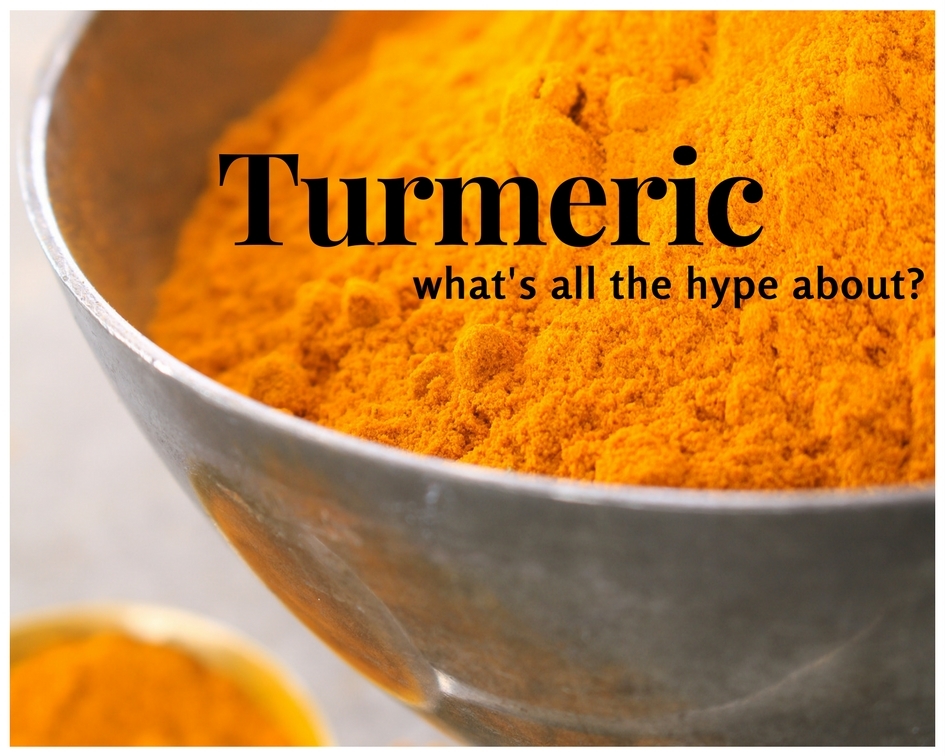You may have recently seen turmeric, a brilliant golden yellow spice, added to unlikely places like milk, protein balls, cakes, and dressings. What’s all the buzz about?
Turmeric is a type of root traditionally used in Indian and Middle Eastern cooking. Most often it is used in curries giving it a bright yellow glow that takes over the dish.
Well, it’s suddenly become an “it” ingredient because it turns out turmeric contains many bioactive compounds that have shown generous physiological benefits. Curcumin is one compound found in turmeric which has powerfully demonstrated potential anti-inflammatory properties in many research studies.
There are two types of inflammation: acute and chronic. Acute is when you can see visible swelling or inflammation of the tissue, such as when you sprain your ankle. However, the other type, chronic, low-level inflammation is now thought to be the precursor to many chronic illnesses including diabetes, cancer, heart disease, autoimmune conditions and others.
Curcumin helps to fight this low-level inflammation at the molecular level. It’s also known to boost hormones in the brain that support brain function and may also protect against certain degenerative diseases such as Alzheimer’s. Lastly, curcumin is also a potent antioxidant. Antioxidants help to prevent free radical damage. Free radicals damage the DNA integrity of cells which can lead to heart disease and cancer, as well as speed up normal aging.
However, and this is a big with a capital H, however. Turmeric itself only contains only about 3% of curcumin by weight. Therefore, the majority of the studies focused on curcumin extract. Most of the studies looked at upwards of 1 gram per day of curcumin extract.
Furthermore, curcumin is poorly absorbed unless paired with other spices such as black pepper. The take away here is that turmeric does contain anti-inflammatory properties, but the studies might not match the actual benefit of using the spice in everyday life. Before running out to get a curcumin supplement, talk to your doctor, there are potential side effects such as blood thinning you’ll want to be aware of.
Turmeric is a tasty beautifully colored spice to use in your cooking. It is likely to provide benefits (like all herbs and spices) when added to recipes. However, the research dose and the dose you are providing yourself with when cooking are two separate things. Best to consume it as part of a well-balanced and well-spiced diet!
